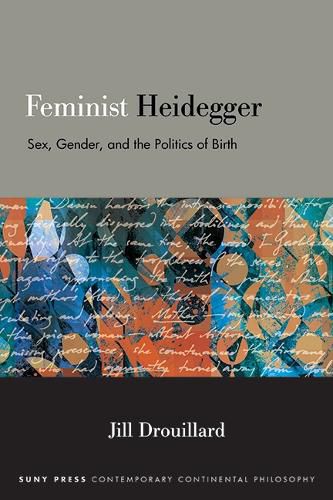Readings Newsletter
Become a Readings Member to make your shopping experience even easier.
Sign in or sign up for free!
You’re not far away from qualifying for FREE standard shipping within Australia
You’ve qualified for FREE standard shipping within Australia
The cart is loading…






A feminist reading of how Heidegger may have responded to an unanswered questioned he posed in 1923, "Problem: What is woman?" while using his thought to better understand how contemporary society replies to questions in the realms of law, bioethics, pedagogy, and politics.
This book begins with an unexplored and unanswered question that Martin Heidegger raises in a 1923 Freiburg course: "Problem: What is woman?" Yet, why should we care that Heidegger raises this "problem"? What could he, a member of the National Socialist Party, help feminists understand about responding to "the woman question"? How can Heidegger help us understand our own historical climate in which this question continues to hold significance? Jill Drouillard divides Heidegger's thought into two categories to think about the sexed/gendered experiences that coordinate our birth: (1) the one that suspends "the woman question" and that provides useful resources for thinking the fluidity of sex/gender, and (2) the one that provides a totalized reply to this query by manipulating tropes of the feminine to advance a politico-poetic project of Nazi politics. She uses Heidegger as a cautionary tale to demonstrate the harm that occurs when society tries to define the being (or "what is") of woman in any definite sense. In some chapters, she teases apart how Heidegger may have offered a reply to "the woman question" and, in others, shows what happens in today's society when law, bioethics, politics, and pedagogy reckon with this query.
$9.00 standard shipping within Australia
FREE standard shipping within Australia for orders over $100.00
Express & International shipping calculated at checkout
A feminist reading of how Heidegger may have responded to an unanswered questioned he posed in 1923, "Problem: What is woman?" while using his thought to better understand how contemporary society replies to questions in the realms of law, bioethics, pedagogy, and politics.
This book begins with an unexplored and unanswered question that Martin Heidegger raises in a 1923 Freiburg course: "Problem: What is woman?" Yet, why should we care that Heidegger raises this "problem"? What could he, a member of the National Socialist Party, help feminists understand about responding to "the woman question"? How can Heidegger help us understand our own historical climate in which this question continues to hold significance? Jill Drouillard divides Heidegger's thought into two categories to think about the sexed/gendered experiences that coordinate our birth: (1) the one that suspends "the woman question" and that provides useful resources for thinking the fluidity of sex/gender, and (2) the one that provides a totalized reply to this query by manipulating tropes of the feminine to advance a politico-poetic project of Nazi politics. She uses Heidegger as a cautionary tale to demonstrate the harm that occurs when society tries to define the being (or "what is") of woman in any definite sense. In some chapters, she teases apart how Heidegger may have offered a reply to "the woman question" and, in others, shows what happens in today's society when law, bioethics, politics, and pedagogy reckon with this query.